5 reasons you need a solar charger: portable, renewable power
Catch those rays and enjoy sustainable, limitless power for your backcountry adventures
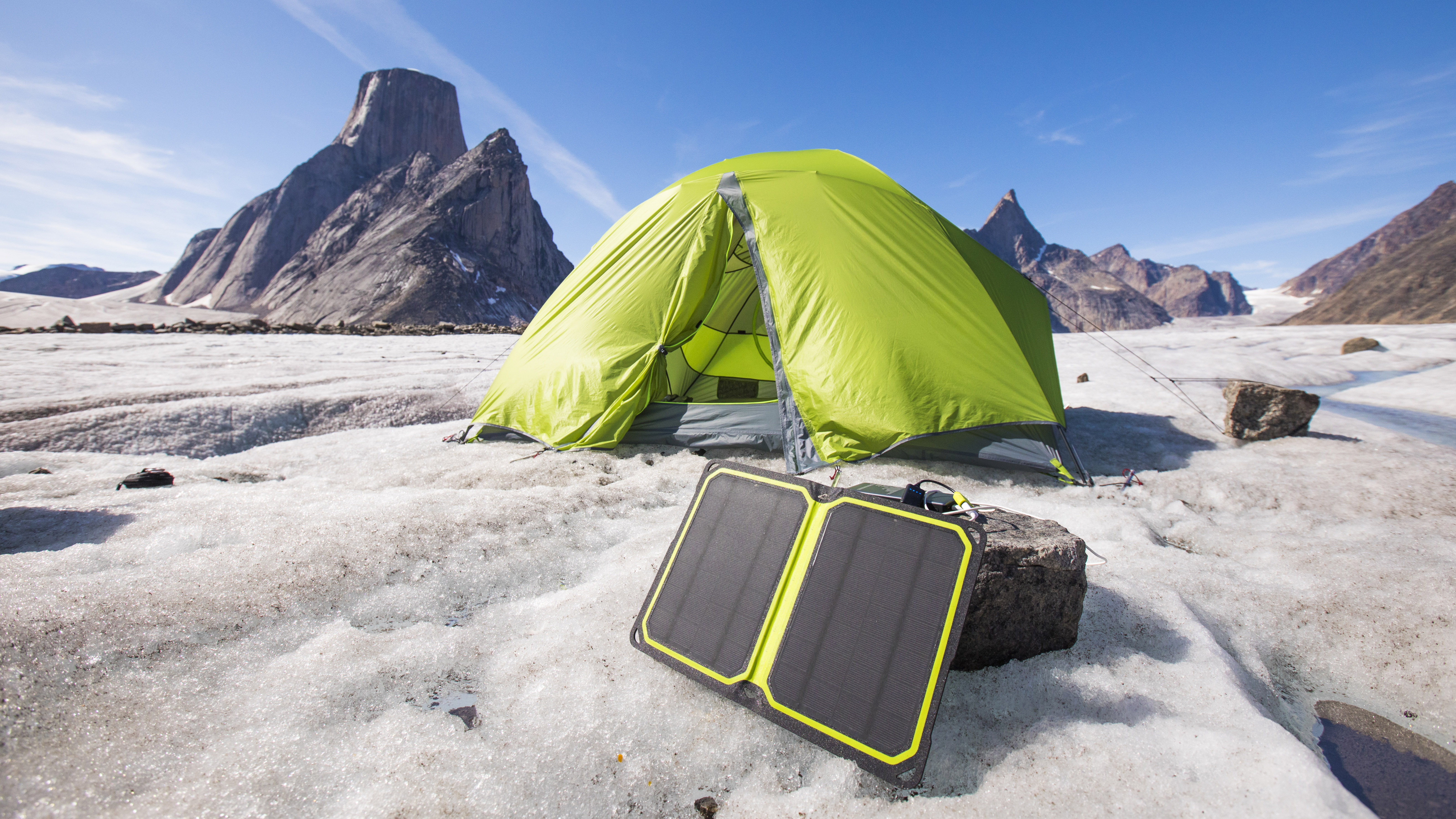
All the latest inspiration, tips and guides to help you plan your next Advnture!
You are now subscribed
Your newsletter sign-up was successful
If you’re venturing off-grid for any considerable length of time, there are several reasons you need a solar charger. The benefits of a limitless power supply mean that you can keep in contact with the outside world, use digital navigation tools, take photos, create videos, illuminate the dark nights, keep your watch ticking along and check in with Instagram, X (formerly known as Twitter), Facebook, Tinder or whatever else floats your boat. That is, provided there’s enough sunlight during the day of course.
Just like a portable power bank, solar chargers store energy to help keep your electronic gadgets charged. Of course, unlike a traditional power bank, which is usually charged via mains electricity before you venture out, a solar charger’s power can be replenished when you’re off-grid. This makes it an ideal gadget to take along on a camping trip or long wilderness adventure.
We’re here with our main 5 reasons you need a solar charger, whether you’re lacing your hiking boots up and venturing off on a thru hike or you’re setting up camp deep in the wild. First, let’s delve into what a solar charger is and how it works in more detail.
Meet the expert
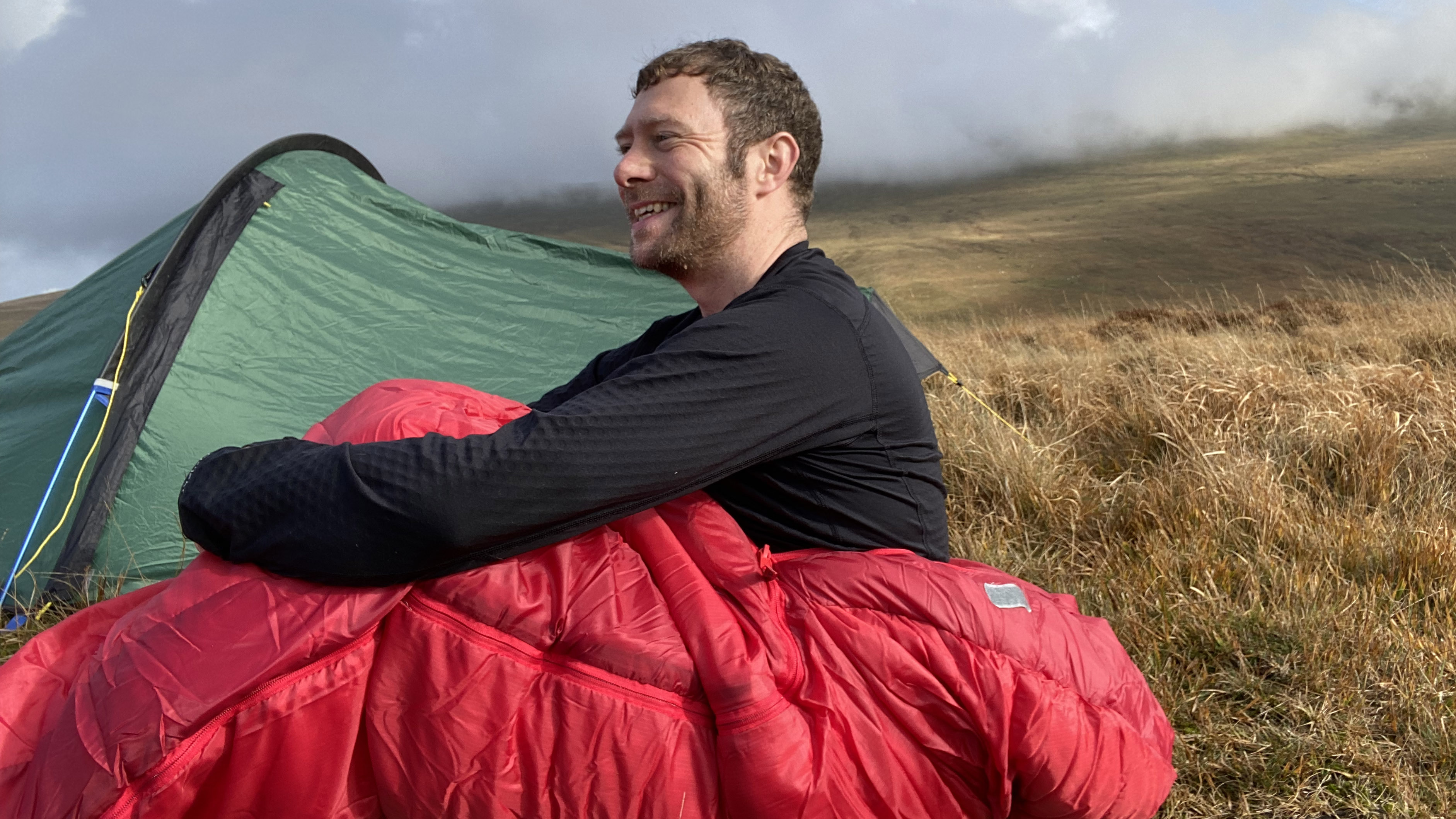
A qualified Mountain Leader and mountaineer, Alex regularly enjoys long and committing adventures in the great outdoors. He’s always been a fan of digital tools to enhance the outdoor experience and always keeps things charged up on any big trips.
Today's best deals
What is a solar charger?
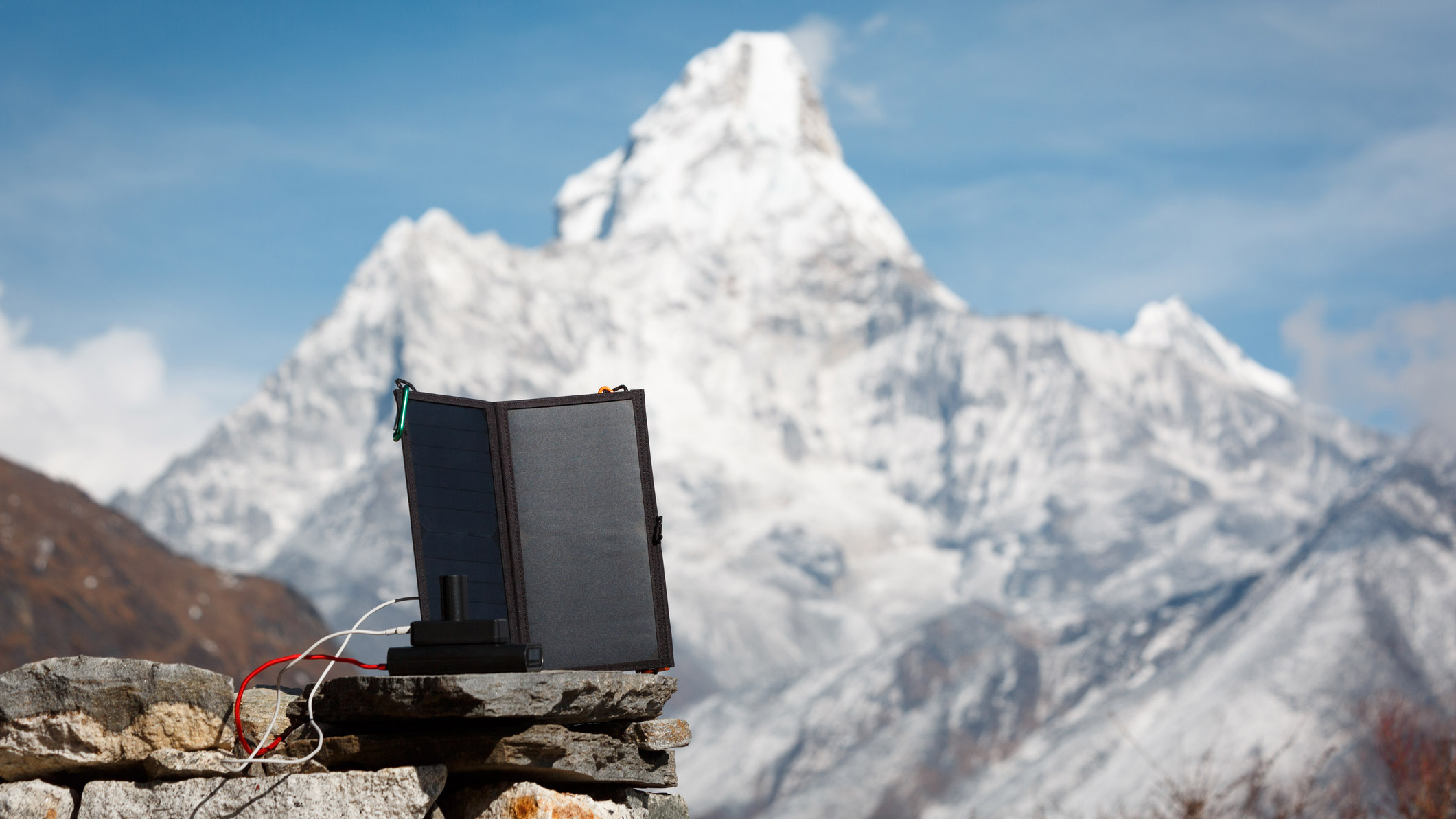
- A solar charger uses the suns energy and converts it into electricity
- Some have an integrated power bank, others are just panels that can be connected to a power bank
- You can then charge your electronic items via a USB
A solar charger uses sunlight to generate power, which is stored in a power bank. Some feature an integrated power bank, while others are a strip of solar panels that can be connected to a bank via a USB cable and fold neatly away for storage in a daypack. The energy collected by the panels allows you to charge various devices, such as your phone, GPS watch, headlamp etc.
The panels work by collecting photons, the super speedy elementary particles that form the basis of all light. Photons have a knack for knocking electrons from their orbits around their parent atoms, particularly in the element silicon, the material used in most solar cells. This is known as the photoelectric effect and it leads to positively and negatively charged particles, creating an electrical field and providing electricity.
Generally, the higher the power figure (in watts) of a solar charger, the quicker it will charge devices. However, higher power means larger, and heavier, solar panels. So unless you plan to carry an entire solar farm on your back, it should also be stated that solar chargers don’t power up devices quite as quickly as plugging them into the grid.
1: Virtually endless potential power
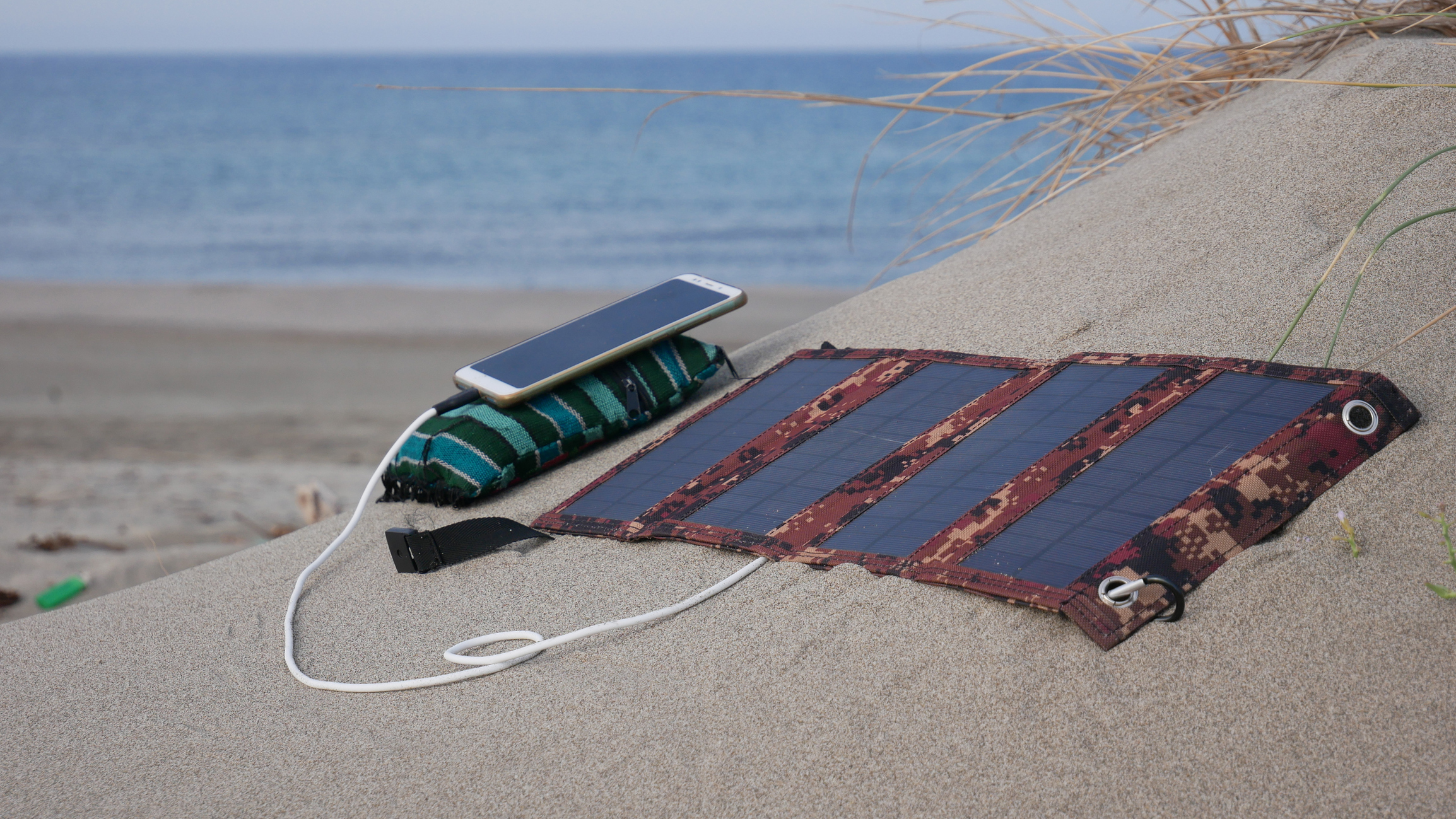
- A solar charger's power can be replenished endlessly with a good supply of sunlight
Where us short-lived mammals are concerned, the potential for energy capture from sunlight is pretty much limitless. Yes, the sun will implode in around 5 billion years to become a red dwarf star, but unless there are unthinkable advances in medical science in the coming decades, none of us will be around to witness this.
All the latest inspiration, tips and guides to help you plan your next Advnture!
So, unlike a regular power bank that’ll run out of power if you ride it too hard, a solar charger’s power can be replenished endlessly, as long as you have a decent supply of sunlight. This means you can literally go off-grid and still have a power source way beyond what you could expect from a standard power bank.
2: A sustainable choice
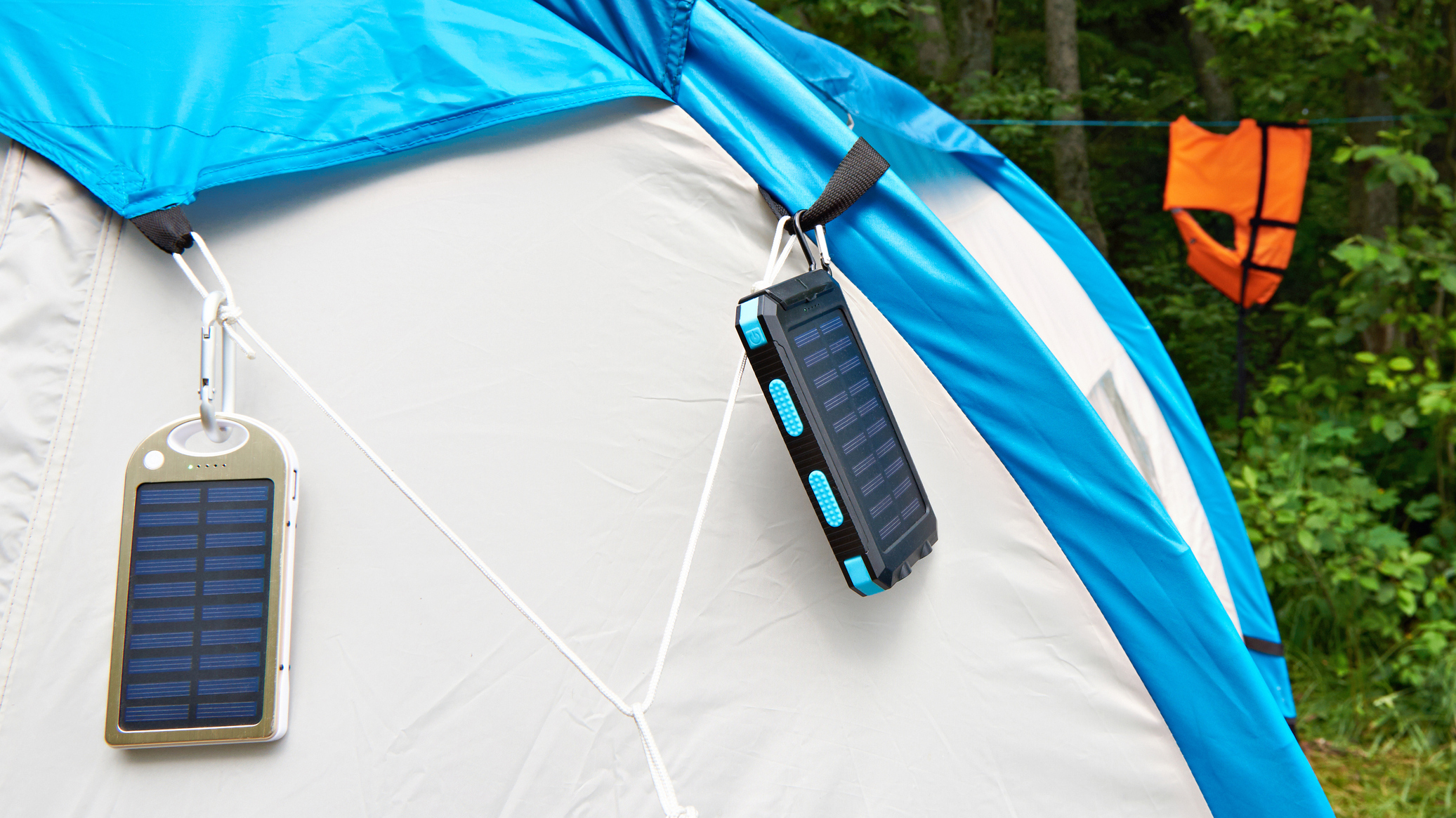
- Solar panels use clean, renewable energy from the sun
- This makes them a much more sustainable way to charge your devices than using power from the grid
Most people who love the outdoors are also acutely aware of the climate crisis. It’s no secret that the biggest contributors to climate change are fossil fuels – oil, gas and coal. Although some of the electricity in the grid comes from renewable energy sources, we still rely far too heavily on fossil fuels for our energy needs. In 2019, according to the United States Environmental Protection Agency, 38% of the US’ electricity was supplied by natural gas, 23% by coal and 20% from nuclear sources. Renewable energy sources, such as wind, hydropower and solar, account for only 17%, though the amount generated is increasing year-on-year.
So, the long and short of it is that by using a solar charger, rather than something you plug into the national grid, you’re making a more sustainable choice. Every little counts when it comes to the climate emergency.
3: Stay in contact, even in the wilderness

- A solar charger allows you to keep your comms devices powered up
- It also allows you to keeping using your phone's applications
Keeping your phone juiced up when out in the wilderness is key in the case of an emergency. Unless you’ve got a satellite communicator tucked away with plenty of battery life for emergencies, your phone is the best way of contacting the outside world. There are other ways to call for help, but none are as reliable or effective as the ability explain your situation to services like mountain rescue.
It's stating the obvious, but your phone has many other applications you may have need, or want, for during your adventures. From taking photographs and videos to using the route planning and digital mapping capabilities of a hiking app or checking the weather on a dedicated mountain weather app or website – there are loads of reasons to keep your phone going on a long expedition.
4: Illumination

- A solar charger can use sunlight by day to give your torches power by night
There’s a certain beauty about using a solar charger to keep your headlamps and camping lanterns going. That light emitted by the sun can be harnessed to then create more light at night is pretty neat if you think about it. When the part of the Earth your backpacking tent is pitched on has turned its back on our star to gaze out into the lonely, dark, cosmos, you can still wield the sun’s power and tuck into whatever novel you’re reading – perhaps Empire of the Sun by JG Ballard or A Thousand Splendid Suns by Khaled Hosseini?
5: Keep your other gadgets going
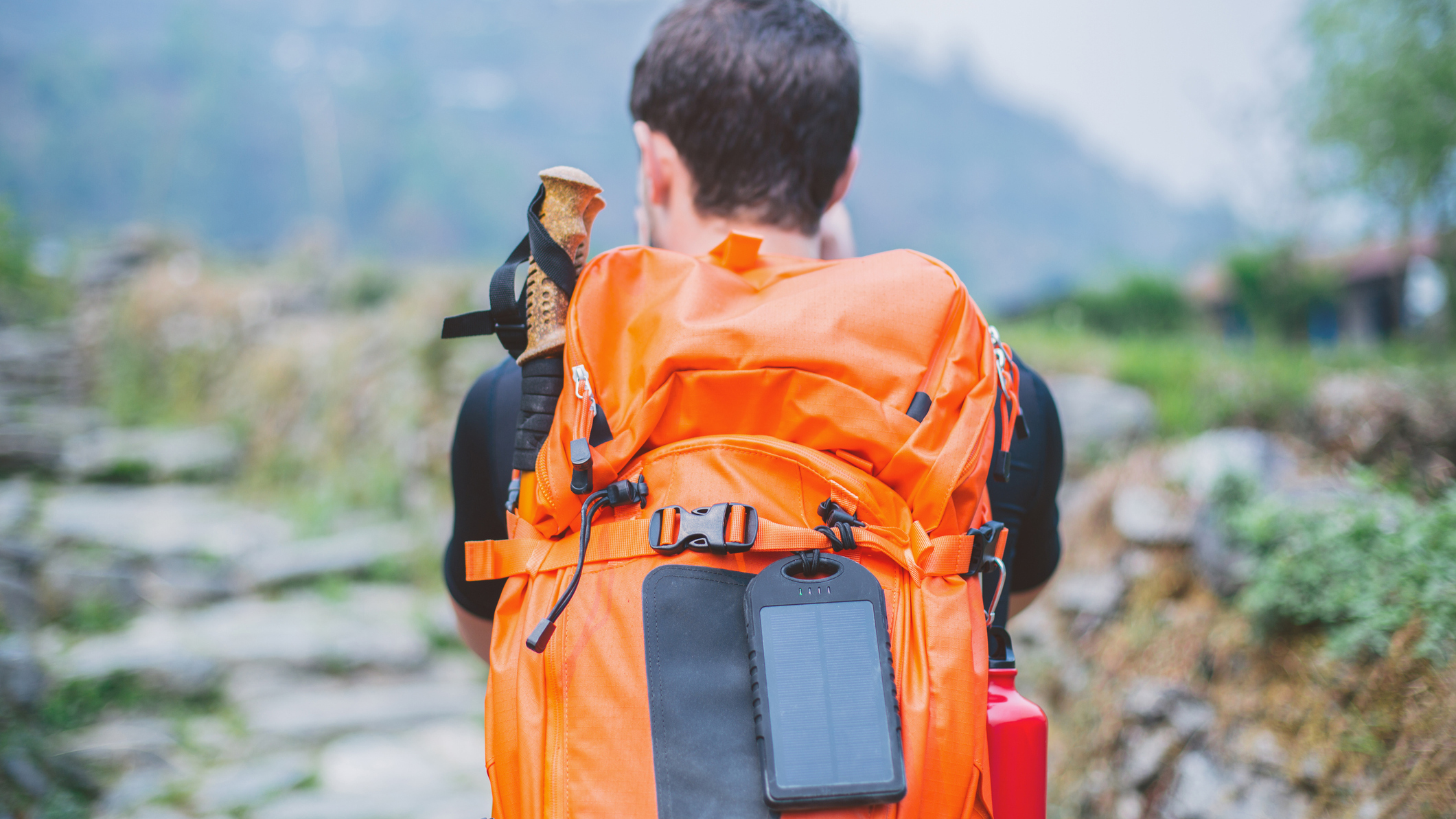
- A solar charger can be used to charge other gadgets like watches, action cameras, tablets etc.
As well as your phone and night time light sources, there are all kinds of other gadgets you’ll probably want to keep powering on while you’re on the trail. You’ll want to keep that GPS watch ticking along for starters, with its various useful features. If you’ve drained your GoPro dry on a particularly exciting ridge traverse, that’ll need charged back up too.
A solar charger should definitely be on your camping checklist too. On sunny camping trips, you can set it up with its panels soaking up the sun’s rays all day long, then use the collected power to keep the family’s Kindles and tablets going. Some campsite cooking appliances even charge using USBs these days. Many solar chargers have multiple USB ports, so you can charge several gadgets at once.
Alex is a freelance adventure writer and mountain leader with an insatiable passion for the mountains. A Cumbrian born and bred, his native English Lake District has a special place in his heart, though he is at least equally happy in North Wales, the Scottish Highlands or the European Alps. Through his hiking, mountaineering, climbing and trail running adventures, Alex aims to inspire others to get outdoors. He's the former President of the London Mountaineering Club, is training to become a winter mountain leader, looking to finally finish bagging all the Wainwright fells of the Lake District and is always keen to head to the 4,000-meter peaks of the Alps. www.alexfoxfield.com

